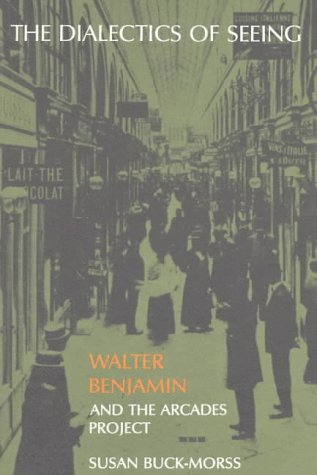David Jenemann: Adorno in America (2007)
Filed under book | Tags: · 1930s, 1940s, 1950s, biography, critical theory, culture industry, Frankfurt school, philosophy, united states

“The German philosopher and cultural critic Theodor W. Adorno was one of the towering intellectual figures of the twentieth century, and between 1938 and 1953 he lived in exile in the United States. In the first in-depth account of this period of Adorno’s life, David Jenemann examines Adorno’s confrontation with the burgeoning American “culture industry” and casts new light on Adorno’s writings about the mass media. Contrary to the widely held belief—even among his defenders—that Adorno was disconnected from America and disdained its culture, Jenemann reveals that Adorno was an active and engaged participant in cultural and intellectual life during these years.
From the time he first arrived in New York in 1938 to work for the Princeton Radio Research Project, exploring the impact of radio on American society and the maturing marketing strategies of the national radio networks, Adorno was dedicated to understanding the technological and social influence of popular art in the United States. Adorno carried these interests with him to Hollywood, where he and Max Horkheimer attempted to make a film for their Studies in Prejudice Project and where he befriended Thomas Mann and helped him craft his famous novel Doctor Faustus. Shuttling between insightful readings of Adorno’s theories and a rich body of archival materials—including unpublished writings and FBI files—Jenemann paints a portrait of Adorno’s years in New York and Los Angeles and tells the cultural history of an America coming to grips with its rapidly evolving mass culture.
Adorno in America eloquently and persuasively argues for a more complicated, more intimate relationship between Adorno and American society than has ever been previously acknowledged. What emerges is not only an image of an intellectual in exile, but ultimately a rediscovery of Adorno as a potent defender of a vital and intelligent democracy.”
Publisher University of Minnesota Press, 2007
ISBN 0816648093, 9780816648092
243 pages
Susan Buck-Morss: The Dialectics of Seeing: Walter Benjamin and the Arcades Project (1989–) [English, Spanish]
Filed under book | Tags: · 1800s, advertising, bourgeoisie, city, commodification, critical theory, cultural criticism, fashion, flaneur, history, literary criticism, literature, paris, photography, poetry

“Walter Benjamin‘s magnum opus was a book he did not live to write. In The Dialectics of Seeing, Susan Buck-Morss offers an inventive reconstruction of the Passagen-Werk, or Arcades Project, as it might have taken form.
Working with Benjamin’s vast files of citations and commentary which contain a myriad of historical details from the dawn of consumer culture, Buck-Morss makes visible the conceptual structure that gives these fragments philosophical coherence. She uses images throughout the book to demonstrate that Benjamin took the debris of mass culture seriously as the source of philosophical truth.
The Paris Arcades that so fascinated Benjamin (as they did the Surrealists whose “materialist metaphysics” he admired) were the prototype, the 19th century ‘ur-form’ of the modern shopping mall. Benjamin’s dialectics of seeing demonstrate how to read these consumer dream houses and so many other material objects of the time—from air balloons to women’s fashions, from Baudelaire’s poetry to Grandville’s cartoons—as anticipations of social utopia and, simultaneously, as clues for a radical political critique.
Buck-Morss plots Benjamin’s intellectual orientation on axes running east and west, north and south—Moscow Paris, Berlin-Naples—and shows how such thinking in coordinates can explain his understanding of ‘dialectics at a standstill’. She argues for the continuing relevance of Benjamin’s insights but then allows a set of “afterimages” to have the last word.”
Publisher MIT Press, 1989
Studies in Contemporary German Social Thought Series
ISBN 0262022680
493 pages
Reviews: Shierry Weber Nicholsen (New German Critique, 1990), Robert Tobin (Phil and Lit, 1991), James L. Gussen (Germanic Review, 1992), Erika Berroth (J Germanic Linguistics, 1994), Beste Alpay (Montréal Review, 2011).
Publisher (EN)
The Dialectics of Seeing: Walter Benjamin and the Arcades Project (English, 22 MB, updated on 2019-12-3)
Dialectica de la mirada: Walter Benjamin y el proyecto de los Pasajes (Spanish, trans. Nora Rabotnikof, 1995, updated on 2013-5-2)
Jacques Rancière: Mute Speech: Literature, Critical Theory, and Politics (1998–) [ES, EN]
Filed under book | Tags: · art history, critical theory, history, history of literature, literary criticism, literature, philosophy, poetry, politics

“Jacques Rancière has continually unsettled political discourse, particularly through his questioning of aesthetic “distributions of the sensible,” which configure the limits of what can be seen and said. Widely recognized as a seminal work in Rancière’s corpus, the translation of which is long overdue, Mute Speech is an intellectual tour de force proposing a new framework for thinking about the history of art and literature. Rancière argues that our current notion of “literature” is a relatively recent creation, having first appeared in the wake of the French Revolution and with the rise of Romanticism. In its rejection of the system of representational hierarchies that had constituted belles-letters, “literature” is founded upon a radical equivalence in which all things are possible expressions of the life of a people. With an analysis reaching back to Plato, Aristotle, the German Romantics, Vico, and Cervantes and concluding with brilliant readings of Flaubert, Mallarmé, and Proust, Rancière demonstrates the uncontrollable democratic impulse lying at the heart of literature’s still-vital capacity for reinvention.”
First published in French as La Parole muette. Essai sur les contradictions de la littérature, Hachette Litteratures, 1998
English edition
Translated by James Swenson
Publisher Columbia University Press, 2011
New Directions in Critical Theory series
ISBN 0231151039, 9780231151030
194 pages
publisher (EN)
La palabra muda: ensayo sobre las contradicciones de la literatura (Spanish, trans. Cecilia González, 2009, 112 MB, added on 2014-3-6)
Mute Speech: Literature, Critical Theory, and Politics (English, trans. James Swenson, 2011)

